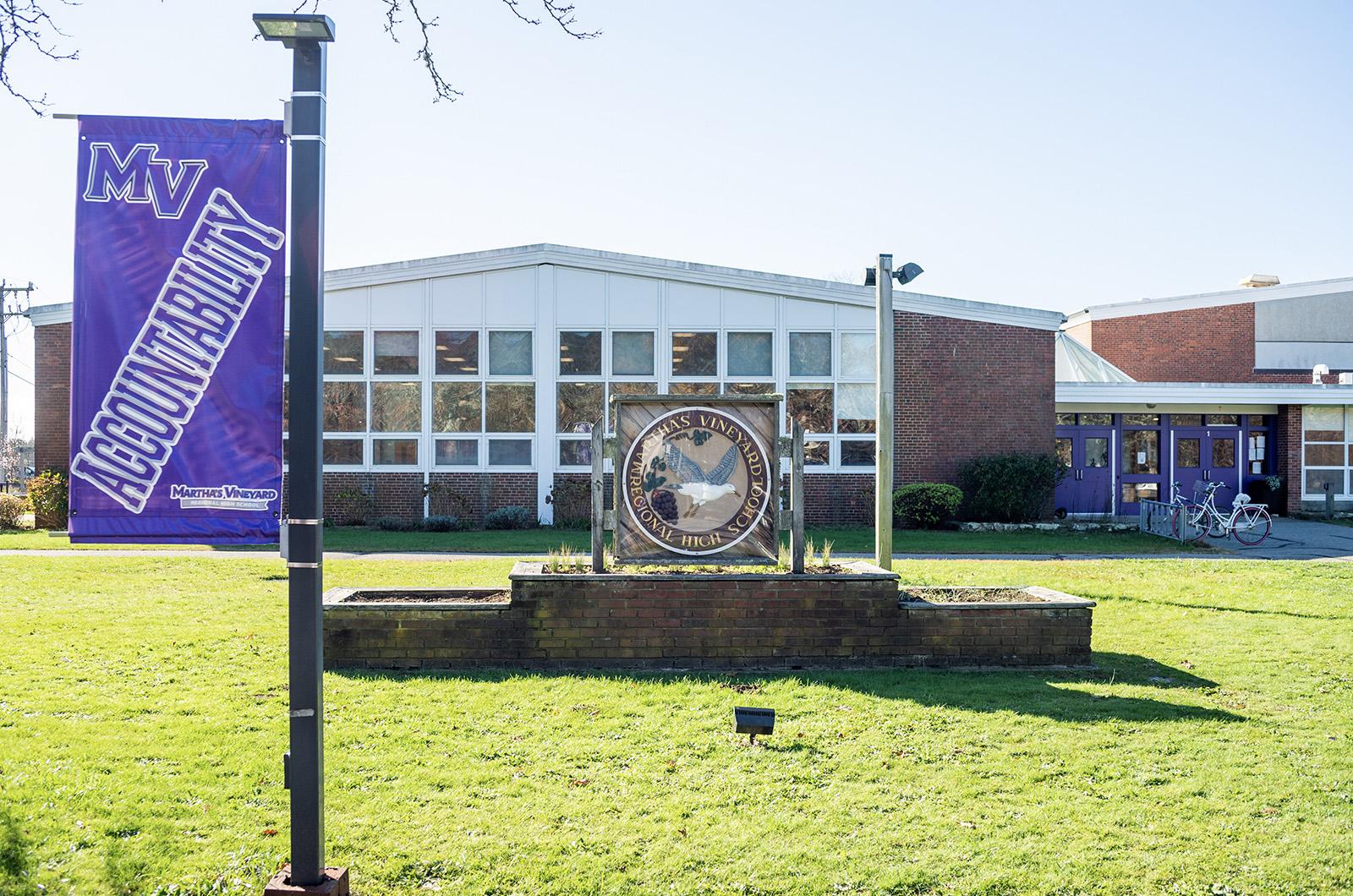Martha’s Vineyard Regional High School officials have proposed an austere $25.1 million operating budget for fiscal year 2024, representing an approximately 2.3 per cent increase over FY2023.
School committee members voted Nov. 28 in favor of principal Sara Dingledy’s budget, which she said has been painstakingly trimmed to fit within the 2.5 per cent growth limit requested by Island towns.
A public budget hearing Nov. 29 resulted in no changes to the bottom line.
But the number of committee members who voted on the budget last week fell short of the quorum required under state education department rules, committee chair Robert Lionette said at this week’s meeting Monday night.
“[State] guidelines are pretty clear,” said Mr. Lionette, who apologized for the error and thanked accounting and finance manager Suzanne Cioffi and finance director Mark Friedman for calling it to his attention.
To remedy the procedural snafu, the regional high school committee will hold a second public hearing on the budget at 7 p.m. Dec. 21 in the high school library, with online participation available, as they restart the certification process.
Island towns requested the 2.5 per cent growth cap — essentially asking the school to abide by the state’s Proposition 2 1/2 limits, without seeking overrides to spend more — earlier this year, as they agreed on a six-way capital cost-sharing formula for the high school’s anticipated renovation or replacement.
At the Nov. 28 meeting, Ms. Dingledy said she and her staff ransacked the budget for savings, keeping the 2024 increase to 2.32 per cent over the current year’s $24.58 million despite significant growth in staff pay after new union contracts were ratified this year.
They took care not to cut where students are concerned, Ms. Dingledy said, instead axing professional development and other teacher-related expenses and mining budget lines for previously approved but unspent funding, such as sports team travel and off-Island field trips that never took place due to Covid restrictions in 2020 and 2021.
Outside of the $25 million, a set of facilities improvements could come before voters on the spring town meeting warrants, though not as override requests.
The school will fund the work — including window repairs, shingling and service for the performing arts center’s ailing HVAC system — from its contingency budget line, which is intended for such expenses, Ms. Dingledy said.
But placing the expenditures on town meeting warrants would aid transparency, allowing taxpayers to see how much the school will actually be spending, she said.
“We’re doing it in a way that’s not going to cost them any money,” she said.
Ms. Dingledy told the committee the fixes can’t wait for the school’s proposed renovation/replacement, which is still working its way through a months-long application process for major state funding.
“If we don’t do them, we end up with bigger problems later,” she said.







Comments
Comment policy »